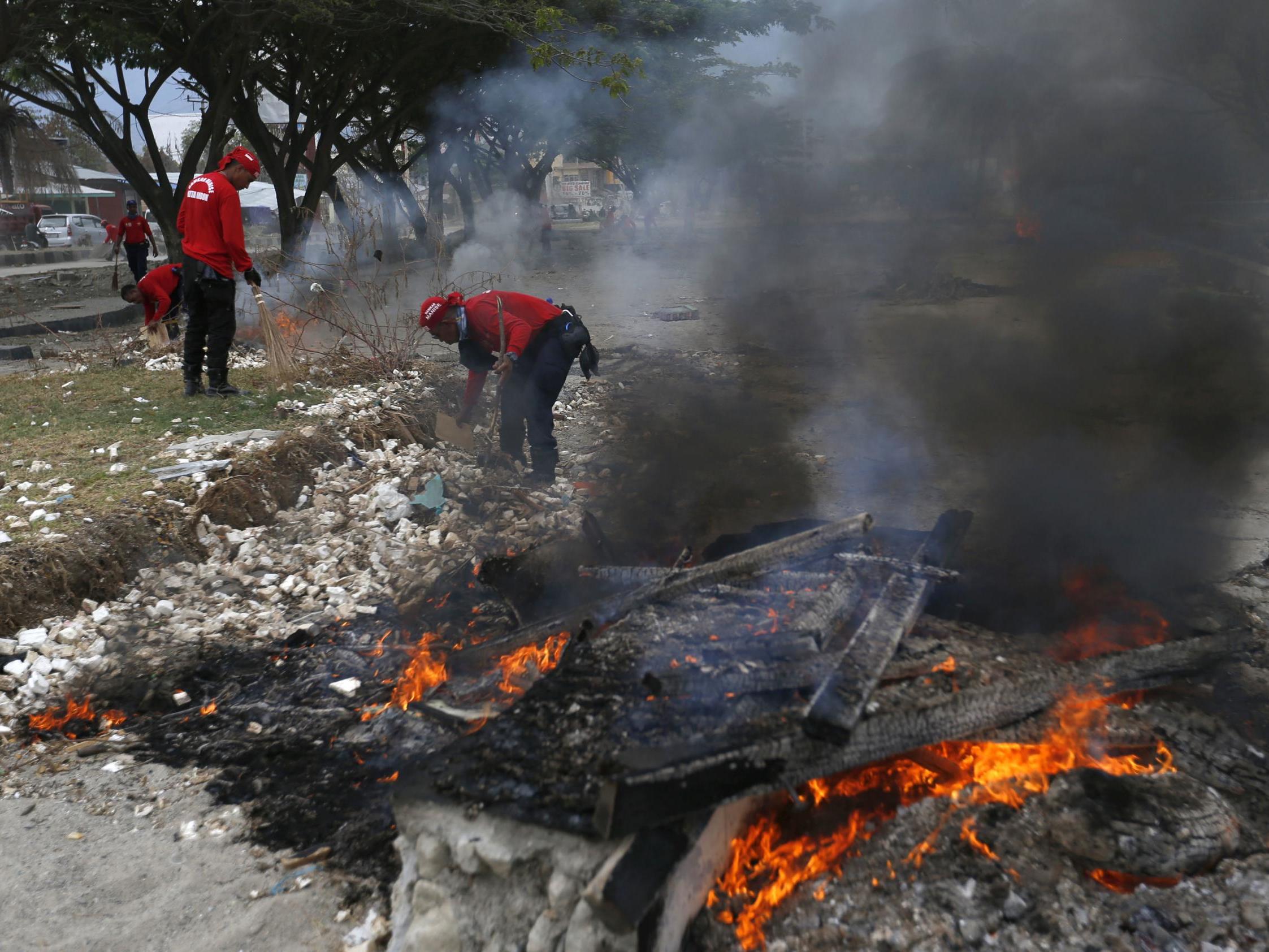Indonesia using helicopters to spray disinfectant over areas with dead bodies from earthquake and tsunami
Move 'is an effort to anticipate the spread of diseases through vectors such as flies, cockroaches, or mice,' disaster agency spokesman says
Helicopters are spraying disinfectant on neighbourhoods in Palu, a city in Indonesia that was devastated by September's earthquake and tsunami, in a bid to combat disease risks from the thousands of bodies which are thought to still be buried in the worst hit areas.
The country's disaster agency spokesperson, Sutopo Purwo Nugroho, said it was necessary because of the large number of victims not recovered by the rescue operation that ended on 12 October.
"Bombing and spraying of disinfectants is an effort to anticipate the spread of diseases through vectors such as flies, cockroaches, or mice," he said, adding that three neighbourhoods would be covered.
Some ground spraying was also carried out but much of the land was too unstable for that to be done comprehensively, he added.
Ahmad Yurianto, head of the Ministry of Health's crisis centre, said that groundwater needed to be checked regularly for contamination.
He added that drainage needed to be established to collect rainwater before it entered the city's river.

The 7.4-magnitude earthquake, which hit Indonesia on 28 September, turned around 430 hectares of land soft soil into mud across the central Sulawesi region in a process known as liquefaction.
Officials said that 2,103 people were killed and 3,500 homes destroyed. A further 5,000 people remain unaccounted for in the neighbourhoods swallowed by the mud.
Officials said that the Palu neighbourhoods of Balaroa, Petobo, and Jono Oge cannot be redeveloped due to the damage suffered.
Balaroa and Petobo will be turned into green spaces with monuments dedicated to the disaster's victims.
Rescue workers had managed to retrieve the body of his wife, Hastuti, who was found still holding the bodies of their other two daughters, aged four and two.
"It is impossible to rebuild homes in the original places," public works and housing minister Basoeki Hadimoeljono told reporters earlier this week.
The Indonesian government is considering a 6 trillion rupiah (£302m) plan to invest in a "New Palu City".
The World Bank has said it can provide the country up to £757m in loans for reconstruction and improving disaster preparednesses.
A massive effort is underway to distribute 215 tonnes of relief, including tarpaulins and clean drinking water, to the thousands of people displaced by the disaster, before the start of the monsoon rains, the Indonesian Red Cross said.
Additional reporting by agencies
Join our commenting forum
Join thought-provoking conversations, follow other Independent readers and see their replies
Comments